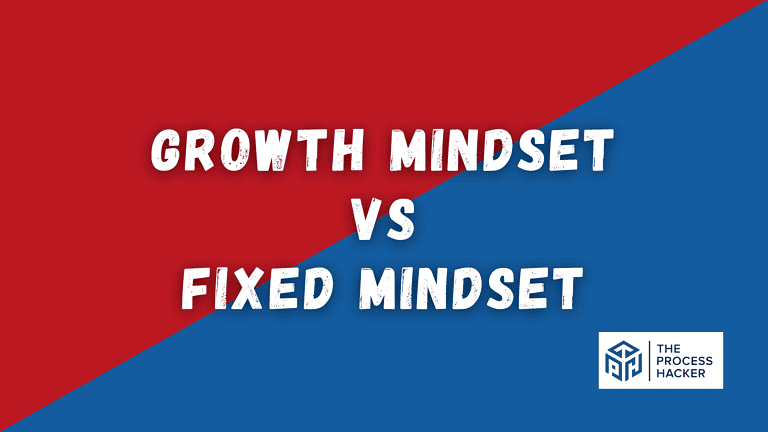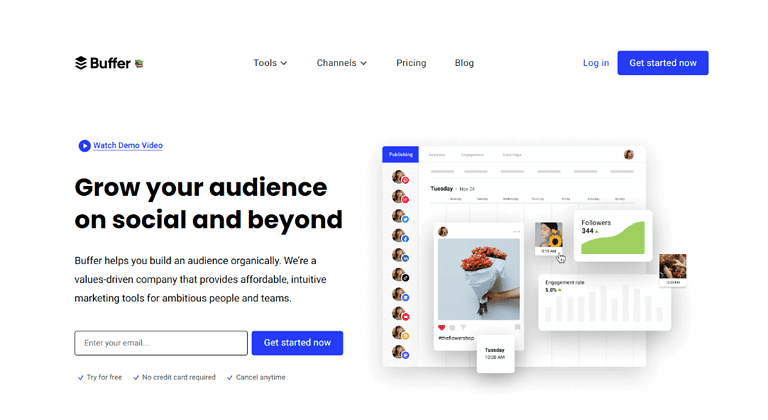How to Craft Winning Marketing Strategies for Startups on a Budget
Struggling to cut through the noise? Feeling overwhelmed by limited resources? Startup life is challenging, and marketing can seem like an insurmountable hurdle. But what if there was a way to level the playing field, even on a tight budget?
Picture this: You, armed with a toolkit of innovative, cost-effective marketing strategies, turning heads and winning customers. Imagine generating buzz, fostering engagement, and driving conversions, all without breaking the bank.
Effective marketing is more than just promotion; it’s the lifeblood of your startup. It’s about connecting with your audience, building relationships, and positioning your brand for success. The right strategies can transform your startup from a hidden gem to an industry leader.
Ready to unlock your marketing potential? In this guide, we’ll dive deep into the world of budget-friendly marketing for startups. We’ll explore proven tactics, share real-world examples, and empower you to craft winning strategies that deliver tangible results.
What are Marketing Strategies for Startups?
Marketing strategies for startups are tailored approaches to promoting products or services, building brand awareness, and driving growth with limited resources. These strategies focus on maximizing impact while minimizing costs.
When you’re starting a new business, crafting effective marketing strategies is essential. These are not just random tactics but carefully tailored approaches designed to promote your products or services, build brand awareness, and stimulate growth, even when your resources are limited.
The core of these strategies is about maximizing the impact of every dollar spent. This means being smart about how you allocate your budget, focusing on high-return activities that increase visibility and attract customers efficiently. By prioritizing these cost-effective methods, you ensure that every effort contributes significantly to your startup’s growth trajectory.
Understanding these strategies is the first step toward turning your vision into a competitive, thriving business.
Why Startups Need Specialized Marketing Strategies
As you embark on your startup journey, you’ll quickly realize that the typical marketing playbook used by established companies won’t necessarily serve your needs. Startups face distinct challenges that demand specialized marketing strategies:
Limited Budget and Resources
You likely don’t have the financial clout of larger competitors. Every dollar you spend needs to work harder, making it crucial to prioritize cost-effective tactics that deliver significant ROI.
Need for Rapid Growth and Customer Acquisition
You need to grow quickly to prove your business model and continue to secure funding. This requires aggressive yet smart marketing techniques to accelerate growth without burning your limited resources.
Raise Brand Awareness from Scratch
Unlike established businesses, you’re starting from zero to build your brand’s identity and reputation. This requires innovative and impactful marketing that can make a strong impression and establish brand recognition early on.
Competing with Established Players
In a market filled with established brands, your startup needs to carve out a unique space. You’ll have to be clever and strategic to capture attention and convert interest into loyalty.
Effective marketing strategies for startups are not just about spending money on advertising; they are about smart, strategic actions that amplify your brand’s visibility and engage your potential customers deeply and meaningfully. By focusing on these specialized strategies, you can level the playing field and drive sustainable growth, even against formidable odds.
How to Develop Marketing Strategies for Startups
So, you’re ready to map out your startup’s marketing journey, but where do you even begin? Crafting winning startup marketing strategy outlines requires a blend of creativity, data-driven insights, and a deep understanding of your audience.
Let’s break down the essential steps to building a marketing strategy that resonates and delivers results.
1. Define Your Target Audience
Understanding your target audience is the cornerstone of any successful marketing strategy. Knowing who your customers are, what they need, and how they behave allows you to tailor your marketing efforts to resonate with them.
Start by conducting market research through surveys, focus groups, and analyzing your competitors. Develop customer personas that detail the demographics, interests, and pain points of your ideal customers.
For instance, a startup selling eco-friendly products might identify young, environmentally-conscious consumers as their primary audience. By defining your target audience, you can create more relevant and effective marketing campaigns.
2. Develop a Strong Brand Identity
Developing a solid brand identity is crucial for any startup looking to make a lasting impression in a competitive market. Your brand identity includes your logo, color scheme, voice, and overall messaging, all of which should cohesively convey your company’s values and resonate with your target audience.
Consistency across all platforms—from your website to social media profiles—builds customer trust and recognition. Digital marketing strategy experts at ETOS Consulting recommend that engaging with a full-service marketing agency can significantly enhance this process.
Their expertise can help you create a compelling brand story, ensure uniformity in your visual and verbal messaging, and implement strategies that strengthen your brand presence online. A well-defined brand identity not only attracts and retains existing customers but also sets the foundation for long-term startup business success.
3. Craft a Compelling Value Proposition
A crucial step in developing impactful marketing strategies for your startup is crafting a compelling value proposition. This is the foundation upon which all your marketing efforts will be built. Here’s how you can create a value proposition that not only captures attention but also converts interest into action:
- Clearly Articulate What Makes Your Product or Service Unique: You need to communicate what sets your offering apart from the competition. Is it faster, more affordable, more comprehensive, or perhaps easier to use? Make sure that this uniqueness is obvious and can be easily understood at a glance.
- Focus on the Benefits You Provide to Customers: Instead of just listing features, show how these features benefit your customers. For example, rather than stating that your SaaS product integrates multiple functions, explain how this integration saves time, reduces errors, or enhances data security. Make it clear how these benefits address specific needs or pain points.
- Ensure Your Message Resonates with Your Target Audience: Tailor your message to the expectations and language of your target market. If you’re targeting tech-savvy entrepreneurs, use terms they understand and appreciate. If your audience is more traditional, simplify your language and focus on reliability and customer service. The key is to connect on an emotional level so your target audience feels like you’re speaking directly to them.
By focusing on these key elements, you can ensure that your value proposition is not just heard but felt. This emotional connection is what will differentiate your startup in a crowded market and build lasting customer engagement.
4. Choose the Right Marketing Channels
Selecting the appropriate marketing channels is pivotal for your startup’s success. This decision can dictate how effectively you connect with your target audience and convert them into loyal customers. Here’s how you can make the right choices:
- Identify Where Your Audience Spends Their Time: Start by pinpointing where your potential customers are most active. Are they scrolling through social media channels, searching on Google, reading industry blogs, or watching videos on YouTube? Your marketing efforts need to intersect with their daily activities to catch their attention effectively.
- Evaluate the Cost-Effectiveness of Each Channel: Marketing budget constraints mean that every dollar counts. Compare the cost of engaging with each channel against the potential return on investment (ROI). Digital channels like social media and content marketing often provide scalable solutions that can be adjusted based on your budget and the response they generate.
- Test and Measure: Once you’ve started deploying your marketing strategies across different channels, closely monitor the performance of each. Use tools like Google Analytics to track engagement and conversion rates. This data will tell you which channels are working and which are not, allowing you to optimize your spending and strategy accordingly.
- Be Adaptable: The digital landscape is ever-changing, and so are the habits of consumers. What works today may not work tomorrow. Stay informed about trends and be ready to pivot your strategy if a particular channel begins to underperform or if a new, more effective platform emerges.
By choosing the right marketing channels, you ensure that your startup not only reaches but also resonates with its intended audience. This resonance will help build brand loyalty and drive growth, even with a limited budget.
5. Create and Distribute Valuable Content
In the digital world, content reigns supreme. Your platform is your chance to showcase your knowledge, enlighten your audience, and solidify your position as an industry expert.
From blog posts and social media snippets to videos and podcasts, prioritize crafting top-notch content that speaks directly to your ideal customer. Share insightful tips, offer practical advice, and weave compelling narratives that forge an emotional connection.
Remember, it’s not just about creating content; it’s about strategic distribution. Share your gems on social media, connect with influencers, and harness the power of email marketing to ensure your message reaches the right eyes and ears.
6. Implement and Measure Your Strategy
Ideas are great, but they’re only as good as their implementation. Once you’ve developed your marketing strategy, it’s time to roll up your sleeves and put it into action. Launch your campaigns, start creating content, and engage with your audience.
Remember, marketing is an iterative process. Track your results, analyze your data, and be prepared to make adjustments along the way. By consistently measuring and refining your approach, you ensure your marketing efforts are always on the right track, driving growth and maximizing your impact.
7. Network and Collaborate
Building relationships within your industry is crucial for long-term success. Networking with industry influencers, other businesses, and potential customers can open up opportunities for collaboration and growth.
Attend industry events, trade shows, and conferences to meet key players and stay updated on trends. Collaborative marketing efforts, such as partnerships, co-hosting events, and guest blogging, can amplify your reach and credibility.
For example, a food startup might partner with a popular food blogger to create content and promote their products. Networking and collaboration help you tap into new audiences and build a strong presence in your industry.
Key Marketing Strategies for Startups
Now that we’ve explored the foundations of successful startup marketing let’s dive into specific strategies that can help you achieve remarkable results without breaking the bank. These approaches leverage your creativity, resourcefulness, and the power of digital platforms to build brand awareness, generate leads, and foster meaningful connections with your target audience.
Content Marketing
Content marketing is a highly cost-effective strategy for startups looking to attract and retain customers. By crafting and sharing valuable information tailored to the interests and needs of your target audience, you can significantly boost engagement and loyalty.
Diversifying the types of content you create is vital—ranging from informative blogs and engaging videos to detailed infographics and comprehensive whitepapers. This variety ensures that you cater to different learning styles and preferences, thus broadening your reach.
Distribution plays a critical role in maximizing the impact of your content. By sharing your content across multiple platforms—such as social media, email newsletters, and industry-specific forums—you can reach your audience where they are most active. This strategy increases the visibility of your content and allows you to engage with different segments of your audience.
Search Engine Optimization (SEO)
Optimizing this content for search engines is crucial. By integrating relevant keywords, structuring your content for readability, and ensuring it provides genuine value, you can drive more website traffic by improving your rankings on search engine results pages.
For instance, a health and wellness startup could gain traction by consistently publishing well-researched blog posts about fitness tips, healthy recipes, and the latest wellness trends. If SEO is done correctly, these topics not only attract readers looking for health information but also improve the likelihood of appearing in search results for those topics.
Consistently delivering high-quality SEO content not only helps establish your startup as a credible authority in your industry but also builds traffic to your website. Over time, this traffic translates into quality leads and loyal customers who value your insights and choose your products or services based on the authority you’ve demonstrated through your content.
Social Media Marketing
Social media helps startups connect directly with their target audience. The key to effective social media marketing lies in choosing the right platforms that align with where your audience is most active and engaged. You can choose a platform based on your demographic’s social media habits and preferences.
For instance, a fashion startup would benefit from focusing on visually-driven platforms like Instagram and Pinterest. These social media platforms promote compelling images and inspirational content, which plays a crucial role in attracting followers.
On the other hand, a B2B tech startup will gain greater value on LinkedIn, a platform renowned for professional networking and business content. There, articles, industry news, and company updates resonate well with the audience.
You should create a solid social media content strategy by curating a mix of different types of content to keep your audience engaged, such as informative articles, engaging videos, and interactive polls. Each piece of content should educate, entertain, or inspire followers to foster a strong connection. Further, you should actively respond to comments and messages to build a loyal community and enhance brand advocacy.
Social media management tools help schedule posts, monitor engagements, and track performance to refine and optimize your strategy. This approach maintains a consistent brand identity and contributes to overall marketing goals.
Email Marketing
Email marketing stands out as a direct and highly effective communication channel for reaching your audience, offering unmatched levels of personalization and engagement. First, build a strong email list by seamlessly integrating sign-up forms into your website, social media, and events, offering incentives to boost sign-ups.
Then, segment your list based on demographics, purchase history, and past interactions. Tailor your emails to different groups to meet their specific needs. For example, potential customers can receive introductory offers and software benefits, while existing users can receive advanced tips and updates to enhance their experience.
There are various types of email campaigns that a startup can leverage:
- Newsletters: Regular newsletters help keep your subscribers engaged and informed about new content, company news, and industry trends.
- Promotional Offers: These are great for driving sales and can include discounts, bundle offers, or limited-time promotions.
- Product Updates: Inform your audience about new features, updates, or fixes to your software or services to keep them engaged and improve user satisfaction.
- Personalized Recommendations: Based on user behavior and preferences, personalized emails can recommend products or services for your audience.
Personalized and segmented email marketing boosts engagement and fosters stronger subscriber relationships. Tailoring content to match subscriber interests and journey stage makes them feel valued and understood, leading to higher conversion rates and increased loyalty.
Moreover, modern email marketing tools can help you automate these processes, making them cost-effective and efficient. This allows you to focus more on content creation and less on getting your emails to your audience.
Pay-Per-Click (PPC) Advertising
PPC advertising, such as Google Ads or social media ads, can provide immediate visibility and drive targeted website traffic. The benefits of PPC include the ability to target specific keywords, demographics, and behaviors, ensuring your ads reach the right audience.
To promote your product or service, you can write compelling ad copy and design eye-catching visuals. For instance, a travel startup might use stunning images of destinations and enticing offers to attract clicks.
Manage your budget effectively by setting clear goals and tracking your return on investment (ROI). Regularly analyze your ad performance and adjust your strategy to maximize results.
Key Considerations for a Successful Startup Marketing Strategy
Focus on measurable results and be prepared to pivot quickly based on data. Prioritize building relationships with your early adopters and leverage their feedback. Remember that consistency and persistence are key in startup marketing.
Taking it to the Next Level: Growth Hacking for Startups
Explore growth hacking techniques to accelerate your startup’s growth. This involves rapid experimentation across marketing channels and product development to identify the most efficient ways to grow your business.
Alternatives to Traditional Marketing Strategies
When you’re managing a startup with a tight budget, traditional marketing methods might not be the best fit due to their often high costs and uncertain returns. Instead, consider alternative approaches that can yield significant impact without the hefty price tag:
Guerrilla Marketing
This creative and unconventional strategy focuses on low-cost, unexpected marketing tactics that grab attention in public spaces. Guerrilla marketing emphasizes creativity and innovation. By designing surprising and memorable experiences, you can generate buzz and enhance brand visibility in a way that resonates deeply with passersby.
Influencer Partnerships
Collaborating with influencers allows you to tap into their established audiences. Choose influencers whose followers align with your target demographic. This method can be more cost-effective than traditional advertising, as influencers can sway opinions and encourage their followers to explore your products or services through genuine, relatable endorsements.
Community Building
Engage directly with people by building a community around your brand. This can be done through online forums, social media groups, or local meetups. Community building helps foster brand loyalty and turns your most enthusiastic customers into advocates who help organically spread the word about your startup.
By integrating these digital marketing strategies into your marketing plan, you can maximize your reach and impact while adhering to budget constraints, setting your startup on a path to sustainable growth and visibility.
Final Thoughts on Marketing Strategies for Startups
Creating effective marketing strategies for your startup may seem like a daunting task, but it is an essential component of achieving sustainable growth.
Remember to always start with a clear understanding of your audience and their needs. This will serve as the foundation for all future marketing efforts. Be creative with your limited resources, and don’t be afraid to think outside the box.
As entrepreneur and author Ryan Holiday once said, “The point of marketing is not to make innovation unnecessary; it’s to make it profitable.” So, don’t be afraid to experiment and try new things.
Stay agile in your approach and be willing to adapt as needed. In the ever-changing world of startups, one thing is for certain: what works today may not work tomorrow. But knowing what you have learned, you can create a powerful marketing engine that drives leads and sales for your startup!
So go forth, my fellow entrepreneurs, and craft those creative strategies that will elevate your startup to new heights!







